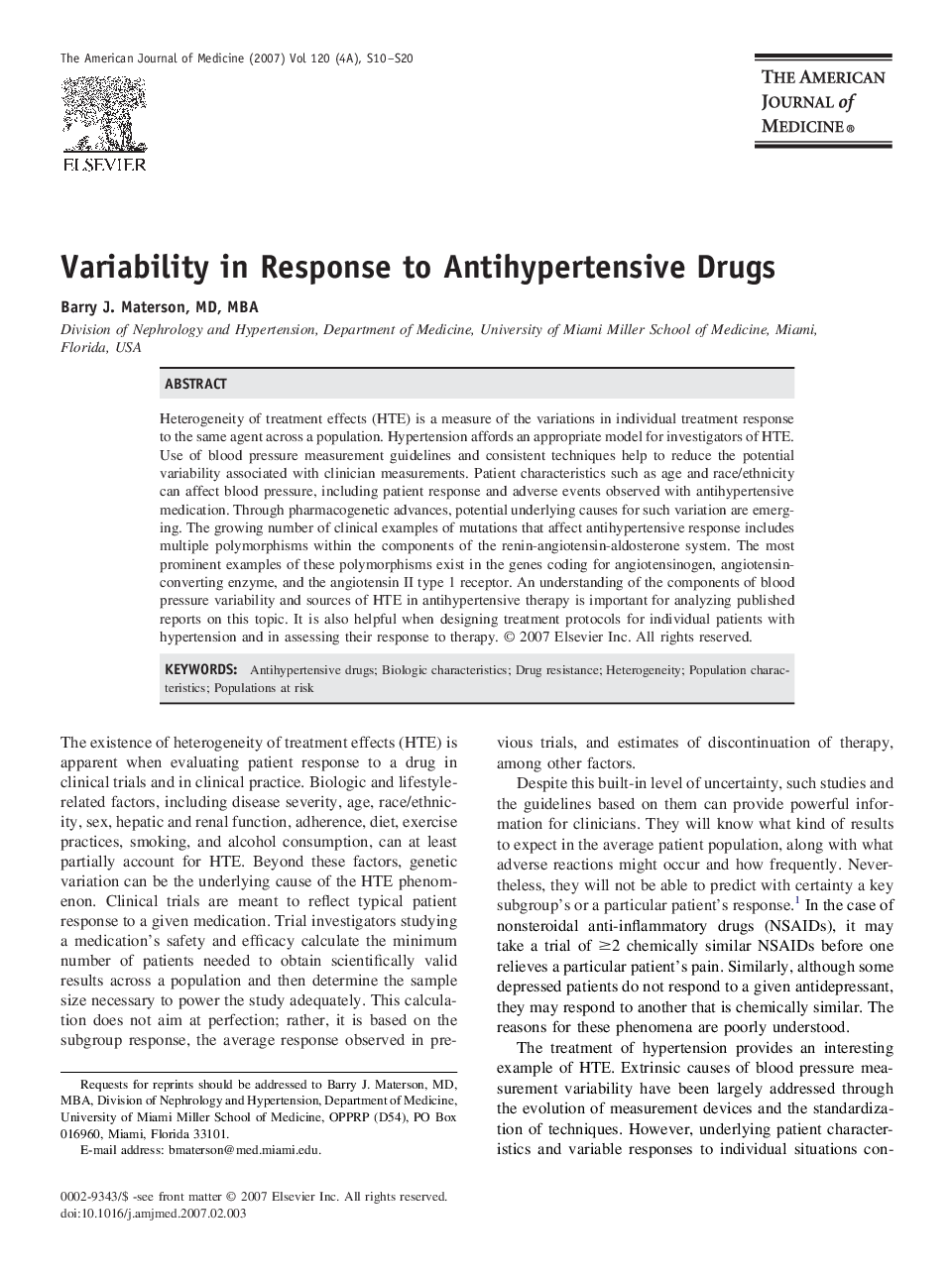| Article ID | Journal | Published Year | Pages | File Type |
|---|---|---|---|---|
| 2725311 | The American Journal of Medicine | 2007 | 11 Pages |
Heterogeneity of treatment effects (HTE) is a measure of the variations in individual treatment response to the same agent across a population. Hypertension affords an appropriate model for investigators of HTE. Use of blood pressure measurement guidelines and consistent techniques help to reduce the potential variability associated with clinician measurements. Patient characteristics such as age and race/ethnicity can affect blood pressure, including patient response and adverse events observed with antihypertensive medication. Through pharmacogenetic advances, potential underlying causes for such variation are emerging. The growing number of clinical examples of mutations that affect antihypertensive response includes multiple polymorphisms within the components of the renin-angiotensin-aldosterone system. The most prominent examples of these polymorphisms exist in the genes coding for angiotensinogen, angiotensin-converting enzyme, and the angiotensin II type 1 receptor. An understanding of the components of blood pressure variability and sources of HTE in antihypertensive therapy is important for analyzing published reports on this topic. It is also helpful when designing treatment protocols for individual patients with hypertension and in assessing their response to therapy.
